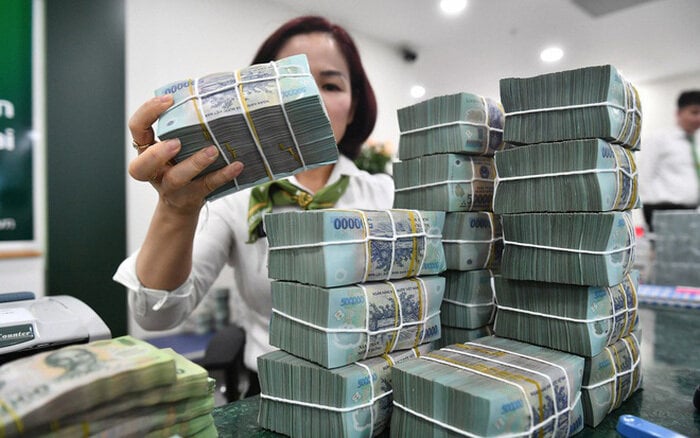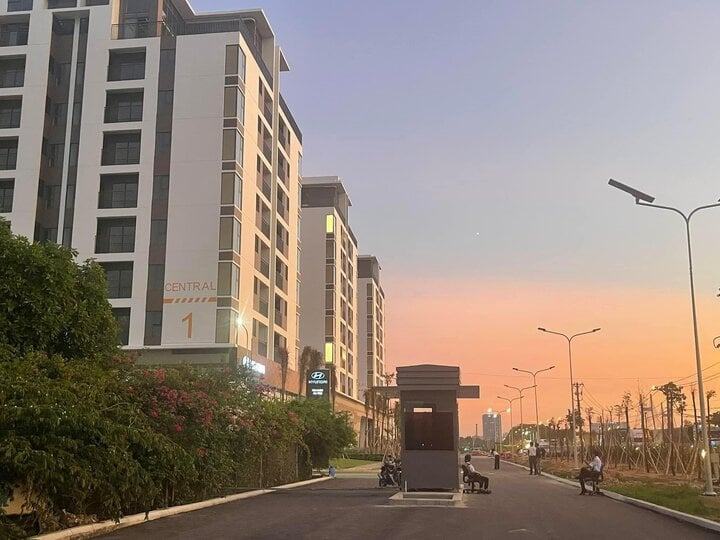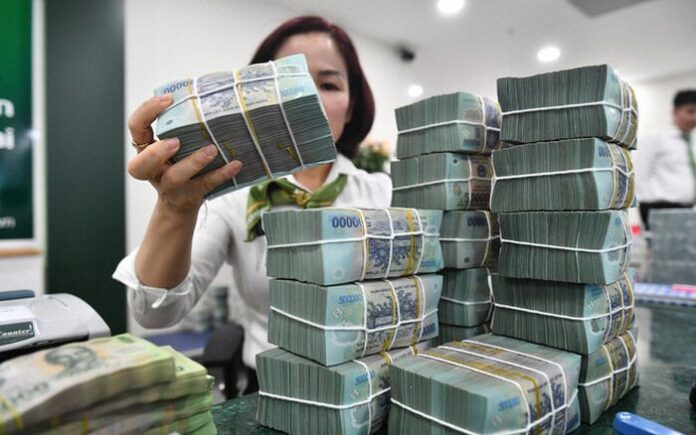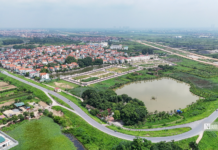In their proposal to increase the supply of social housing and offer credit incentives to investors, buyers, and renters, the Ho Chi Minh City Real Estate Association (HoREA) recommends maintaining the interest rate for loans at 4.8% per annum as per the Prime Minister’s Decision 486. However, the association suggests that a preferable option would be to consider and apply an interest rate of 3% per annum for buyers and rent-to-buyers of social housing at the Social Policy Bank.
Simultaneously, HoREA requests that the Prime Minister consider reducing the interest rate for poor households borrowing from the Social Policy Bank from 6.6% per annum to 3-4.8% per annum to ensure consistency and alignment with reality.

The increase in interest rates for social housing loans from 4.8% to 6.6% per annum puts a significant strain on poor households borrowing to buy homes. (Photo: TL)
This proposal is based on the fact that Decision 486 is no longer in effect, as it has been superseded by Decree 100, which came into force on August 1, 2024.
According to Decree 100, the Social Policy Bank has issued a document adjusting the interest rate for preferential loans for social housing. Under the new adjustment, the interest rate for loans is 6.6% per annum, 1.8% higher and 1.37 times higher than the interest rate before August 1, which was 4.8% per annum as per Decision 486.
With the new interest rate effective from August 1, 2024, buyers and rent-to-buyers of social housing will face increased pressure due to the significant rise in monthly interest payments.
For example, let’s consider a couple, Mr. and Mrs. A, who purchased a social housing unit for VND 1 billion and borrowed VND 800 million for 20 years at an interest rate of 4.8%. In June and July 2024, their monthly interest payment was approximately VND 3.2 million, with a principal payment of about VND 3.3 million. This resulted in a total monthly payment of VND 6.5 million for those two months and the preceding ones.
However, starting in August, with the new interest rate of 6.6% per annum, the couple has to pay VND 4.38 million in interest and VND 3.3 million in principal, making their total payment for the month VND 7.68 million. This represents an increase of VND 1.18 million. Consequently, within a year, their interest expenses will rise by approximately VND 14 million.
Mr. Le Hoang Chau, Chairman of HoREA, opined that the interest rate of 6.6% per annum stipulated in Decree 100/2024 for poor households borrowing from the Social Policy Bank is excessively high. In fact, it surpasses the current interest rates offered by commercial banks. For instance, Vietcombank offers consumer loans of up to billions of dong without collateral, requiring only proof of repayment capability, with interest rates ranging from 4.2% to 5% per annum.

One of the few housing projects for workers being completed in Thu Duc City, with some brokers offering units at prices exceeding VND 25 million per square meter. (Photo: FB)
Regarding the preferential policies for investors of social housing projects borrowing from the Social Policy Bank, HoREA believes that while Decree 100 provides various incentives, the preferential interest rate stipulated in the decree is 7.92% per annum for 2024, approaching the current rate of 8% per annum for the VND 120 trillion credit package.
Notably, one of the reasons for the lackluster uptake of the VND 120 trillion package is the high-interest rate, and the State Bank of Vietnam has proposed adjustments. These adjustments are expected to reduce the interest rate by 3-5% and maintain stability over a five-year cycle, while also extending the loan term to around 10-15 years.
If these proposed reductions are implemented, investors in social housing and buyers or rent-to-buyers of social housing will be more inclined to utilize the VND 120 trillion package due to its lower interest rates compared to the Social Policy Bank.
According to HoREA, if their proposal is approved, social housing developers will benefit from an interest rate of 5.76% per annum or even 3.6% per annum in 2024, as per the provisions of Decree 100.
In terms of social housing development, at the recent “People Ask, Authorities Answer” program, the Ho Chi Minh City Department of Construction shared that the city aims to construct approximately 69,700 – 93,000 social housing units by 2030. This target is divided into two phases: 2021 – 2025, with a goal of 26,200 – 35,000 units, and 2026 – 2030, with a goal of 43,300 – 58,000 units.
In the first few months of 2024, the city completed two projects comprising 610 apartments. These include the Nguyen Son – Binh Chanh social housing project with 242 apartments and the worker accommodation project in Thanh My Loi Ward, Thu Duc City, with 368 apartments (the total number of apartments in this project is 1,040).
Additionally, there are six ongoing social housing projects in the city, including five social housing projects and one worker accommodation project, totaling 4,386 apartments.
Accelerating disbursement of the 120 trillion VND credit package for social housing
Deputy Prime Minister Trần Hồng Hà has recently issued directives regarding the implementation of the 120,000 billion VND credit package for investors and buyers of social housing, workers’ housing, and projects for the renovation and construction of apartment buildings.
The truth about the State Bank banning loans for future home purchases
Due to the recent regulations issued by the State Bank, many individuals are concerned about their ability to obtain loans for future housing purchases starting from July 2024. The State Bank has provided more detailed information regarding these new regulations.
Territory-based credit policy in Ho Chi Minh City shows nearly 39% growth
Credit programs, not only support and assist the poor and vulnerable, who are the main subjects of policies in Ho Chi Minh City, with capital for production and business to create livelihoods and employment opportunities, but also play a significant role in the direction of sustainable economic development, economic growth, and social security ensured by the Government.





















